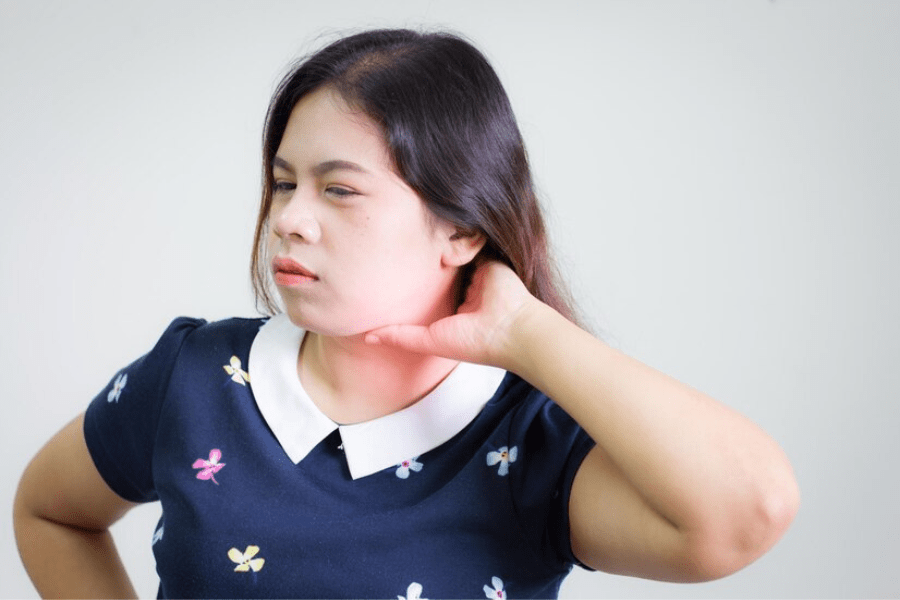Aicardi-Goutières syndrome (AGS)
Overview

Aicardi-Goutières syndrome (AGS) is a rare genetic disorder that can cause intellectual and physical problems in children.
AGS affects the brain, the immune system, and the skin. The disease impacts the white matter of the brain, which is made up of nerve fibers that are coated in myelin, a substance that protects the nerves.
This coating can break down, leading to the impairment of intellectual or physical abilities in children. AGS is caused by a mutation in certain genes that results in an accumulation of calcium in the brain.
This accumulation triggers an immune response that causes the symptoms of AGS.
AGS Symptoms
• Common indications include: Neurological abnormalities. AGS often presents with developmental delays, intellectual disabilities, and movement abnormalities, resulting in delays in reaching milestones like motor skills and speech.
• Encephalopathy: Progressive brain damage leads to inflammation in brain tissue, causing irritability, seizures, abnormal muscle tone, and spasms or stiffness.
• Skin Changes: Some AGS individuals may exhibit chilblain-like lesions on extremities, especially in response to cold temperatures.
• Eye Abnormalities: Retinal abnormalities or optic nerve atrophy may lead to vision problems or loss in AGS individuals.
• Immune System Dysfunction: AGS is linked to defects in immune system genes, causing chronic immune response activation and autoimmune-like attacks on the body's cells.
• Liver Abnormalities: Some individuals may display hepatomegaly or abnormal liver function tests.
Causes & Risks
Aicardi-Goutières Syndrome (AGS) is mainly caused by changes in specific genes that control the immune system. The key genes linked to AGS are:
• TREX1 gene: This gene provides instructions for making an enzyme that breaks down DNA. Changes in TREX1 can cause abnormal DNA fragments to accumulate, triggering inflammation and an immune response in the body.
• RNASEH2 genes: These genes produce components of the RNASEH2 enzyme, which helps remove certain structures formed during cell processes. Mutations in these genes lead to the buildup of cell debris and activate the immune system.
• SAMHD1 gene: SAMHD1 produces a protein regulating the cell's response to DNA damage and viruses. Changes in SAMHD1 can result in an overly active immune response and inflammation.
• These genetic changes disrupt the normal immune system function, causing inflammation in the brain and other tissues.
Test & Diagnosis
Diagnosing Aicardi-Goutières Syndrome (AGS) poses challenges due to its rarity and diverse symptoms. Several diagnostic methods are commonly employed:
• Clinical evaluation: Doctors examine medical history and symptoms for characteristic signs like neurological abnormalities, developmental delays, skin lesions, and indications of an overactive immune system.
• Laboratory tests: Blood tests measure interferon-alpha levels, often elevated in AGS, and genetic testing identifies mutations in associated genes (TREX1, RNASEH2A, RNASEH2B, RNASEH2C, or SAMHD1).
• Imaging studies: Magnetic resonance imaging (MRI) reveals brain abnormalities, including white matter changes or calcifications, often seen in AGS.
• Cerebrospinal fluid (CSF) analysis: Evaluating CSF obtained through a spinal tap detects abnormalities, such as increased protein levels or cell count, indicating central nervous system inflammation.
• Skin biopsy: Sometimes, a biopsy examines skin lesions, providing additional evidence supporting the AGS diagnosis.
AGS Treatment
• Symptomatic Treatment: Medications address specific AGS symptoms, such as seizures or inflammation, enhancing the individual's quality of life.
• Multidisciplinary Care: Collaboration among healthcare professionals ensures comprehensive support from neurologists, geneticists, developmental specialists, physical therapists, occupational therapists, and speech therapists, meeting individual needs.
• Early Intervention Programs: Initiatives like physical therapy, occupational therapy, speech therapy, and developmental interventions maximize functional abilities, address developmental delays, and enhance motor skills.
• Educational Support: Tailored programs and accommodations, along with specialized teaching methods, help children with AGS overcome learning difficulties and support cognitive development.
• Supportive Care: Emotional support, counseling, and assistance for families cope with AGS challenges, contributing to the overall well-being of affected individuals.
Living With AGS
Living with Aicardi-Goutières Syndrome (AGS) necessitates a multidisciplinary approach involving neurologists, geneticists, therapists, and dedicated caregivers.
Implementing adaptive strategies and early intervention programs can significantly enhance daily functioning and developmental outcomes.
Customized education plans, emotional support systems, and ongoing healthcare supervision are vital components of comprehensive care. Family involvement is paramount, fostering resilience and adaptability in navigating the complexities of AGS.
Flexibility in treatment approaches and staying informed about advancements in research are essential for optimizing management strategies and providing the best possible quality of life for individuals with AGS.
Complications
• Aicardi Syndrome presents various complications including seizures, often severe and challenging to manage with multiple treatments.
• Developmental delays are common, affecting motor skills, language, and cognitive abilities. Intellectual disability varies among individuals, influencing learning and cognitive function.
• Vision problems arise from chorioretinal lacunae, potentially causing vision loss. Movement disorders and skeletal abnormalities like scoliosis may occur.
• Gastrointestinal issues, respiratory complications, and susceptibility to infections are prevalent due to immune system abnormalities.
• Emotional and behavioral challenges, including mood changes and difficulties in social interactions, are observed.
These complications necessitate comprehensive management and support tailored to individual needs.

The Content is not intended to be a substitute for professional medical advice, diagnosis, or treatment. Always seek the advice of your physician or other qualified health provider with any questions you may have regarding a medical condition.
Know more about
Our Healthcare Planner
Personal Health Planner at BNC is a support staff who listens to your concerns and connects you with a Neuro Care provider. They prioritize your needs and create a trusting relationship between you and the provider.
Three fundamental values we can assure you:
1. Personalized Healthcare.
2. Most advanced robotic therapies
3. Transparent pricing





